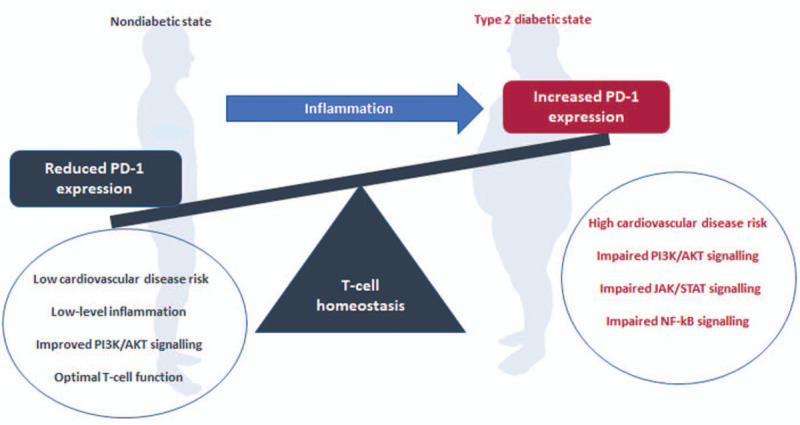Figure 3.

An overview of mechanisms that implicates programmed cell death-1 signaling and its modulatory effects on T-cell function. In brief, chronic immune activation in type 2 diabetes mellitus is known to increase cardiovascular risk and T-cell exhaustion, which is likely to be mediated by the upregulation of programmed cell death-1 (PD-1), a negative T-cell regulator. Thus, increased expression of PD-1 can alter glucose metabolism by inhibiting the actions of phosphoinositide 3-kinase/protein kinase B (PI3K/AKT) signaling. It further appears that PD-1 expression promotes T-cell proliferation and survival but inhibit their effector functions by upregulating the detrimental mechanisms such Janus kinase/signal transducers and activators of transcription (JAK/STAT) and nuclear factor kappa B (NF-κB) signaling pathways.
